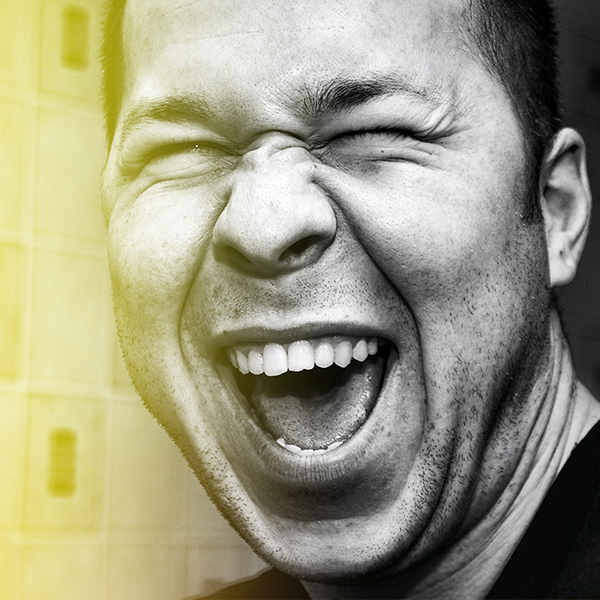The Strategic Art of Saying No at Work (and What It Does for Your Career)

When was the last time you were saying no at work and didn’t feel guilty about it?
For many professionals, especially those eyeing leadership roles or climbing the ladder quickly, saying yes feels like the only acceptable answer.
Yes to the extra project. Yes to the weekend meeting. Yes to helping out, even if it means staying late again. There’s a deep-rooted belief that being agreeable is the same as being valuable.
It’s not always easy to admit, but constantly saying yes often prevents progress.
At The Happy Mondays Co., we meet high-potential professionals who are burning out quietly while trying to be everything to everyone. Instead of more productivity hacks, what they need is permission – and the courage – to set boundaries that serve their long-term vision.
And this starts with one powerful belief shift: Saying no at work doesn’t close doors. It opens the right ones.
Why Saying Yes to Everything Isn’t a Career Strategy
There’s a moment we often see in coaching. A talented professional who’s feeling stuck, even though they’re constantly busy. They’re the go-to person. The one everyone trusts to get things done. But they feel invisible in the room when it’s time for promotions or new opportunities.
Here’s something worth sitting with: Overcommitment can be a career-limiting move. Why?
- Burnout: Being constantly “on” drains your energy, creativity, and resilience. You may deliver, but you’re not thriving.
- Diluted Impact: When everything is urgent, nothing gets your best. You become a generalist fire-fighter instead of a strategic contributor.
- Low Visibility for High-Value Work: When your calendar is crammed with low-impact tasks, you don’t have time to shine where it counts.
Being the dependable one is admirable… Until it becomes invisible.
Just because you're busy doesn't mean you're advancing. Leadership is about discernment, not availability. You don’t rise by doing more, but by doing what matters.
The Real Fear Behind Saying No
If you’ve ever hesitated to say no, you’re not alone and you're not weak. There are very real fears underneath that instinct:
- “I don’t want to seem unhelpful.”
- “What if I miss out on a chance to grow?”
- “My manager will think I’m not committed.”
Sometimes, it's not even about the current task but about proving ourselves. Especially in environments where we feel we have something to prove: as a woman in a male-dominated industry, as a new leader, or as someone from a marginalised background.
A client once shared during a session: “I say yes to everything because I don’t want to give anyone a reason to question if I deserve to be here.” That landed like a punch to the gut, and it’s not uncommon.
However, every yes has a cost. It’s not just time we’re talking about. You’re giving away space for reflection, strategic work, creativity, and growth.
The discomfort of saying no is short-term, whereas the cost of always saying yes is cumulative. Over time, it chips away at your clarity, confidence, and capacity.
When and How to Say No Without Damaging Relationships
There’s a proper way to say no. By communicating clearly, with care and purpose. Here are a few practical, professional (and kind) ways to say no without burning bridges:
- “I’m at capacity this week. Can we revisit this next month?”
- “This doesn’t align with the goals we agreed on. Shall we prioritise together?”
- “I’d love to support this, but it’ll compromise delivery on X. How shall we proceed?”
- “To give this the attention it deserves, I’ll need to delegate or defer something else. Let’s align on that.”
Notice how none of these responses are defensive or negative. They’re honest, responsible, and, more importantly, strategic.
Saying no is about protecting your bandwidth for high-value work, and showing your team and leaders that you have clarity and focus.
Here’s where the shift begins: Saying no can actually elevate your reputation. It shows that you’re someone who knows the business priorities and guards them wisely.

Why Saying No at Work Is a Leadership Skill
There’s a myth that leadership means doing more. But truly effective leaders do less, and lead more.
They know when to step back, when to delegate, and when to say, “This isn’t where my focus should be right now.”
A senior leader we worked with shared how their entire career trajectory shifted when they learned to say no intentionally. Early in their leadership role, they were doing everything. Attending every meeting, saying yes to every favour. They were exhausted and losing sight of their vision.
Through coaching, they started to ask one question before committing: “Does this move me, or my team, closer to our strategic goals?”
That one filter changed everything. Their performance review reflected a clearer, more decisive leadership style. Their team stepped up because there was more space. And their time was finally spent where it had the biggest impact.
Leadership is about guiding everything in the right direction. Thus, saying no is a responsibility.
How Leadership and Performance Coaching Helps You Build This Muscle
It’s one thing to know you need to say no more often. It’s another to actually do it.
That’s where Leadership Coaching and Performance Coaching at The Happy Mondays Co. comes in. It’s a space designed for high-potential professionals like you who are navigating complex decisions, high expectations, and internal doubts.
We help you practise:
- Strategic boundary-setting by saying no at work without guilt or anxiety.
- Navigating stakeholder dynamics with empathy and clarity.
- Prioritising high-value work even when everything feels urgent.
- Building self-trust so you can lead from conviction, not reaction.
You’ll have a trusted sounding board for those high-stakes conversations, and a safe place to strengthen the skills that make you a more effective, confident leader.
Because having the power to say no may just be transformational.
Conclusion
Saying no at work is a redirection of your energy toward what matters.
And sometimes, the most courageous thing you can do in your career is to pause, assess, and protect your focus by saying no at work. That’s what strategic leadership looks like.
The next time you feel the guilt bubbling up, ask yourself: What would a wise, future-focused leader do?
Because that’s who you are becoming.
And if you’re ready to build that muscle with support and clarity, Leadership Coaching or Performance Coaching at The Happy Mondays Co. is here for you. Let’s shape your “no” into a powerful step forward.




















